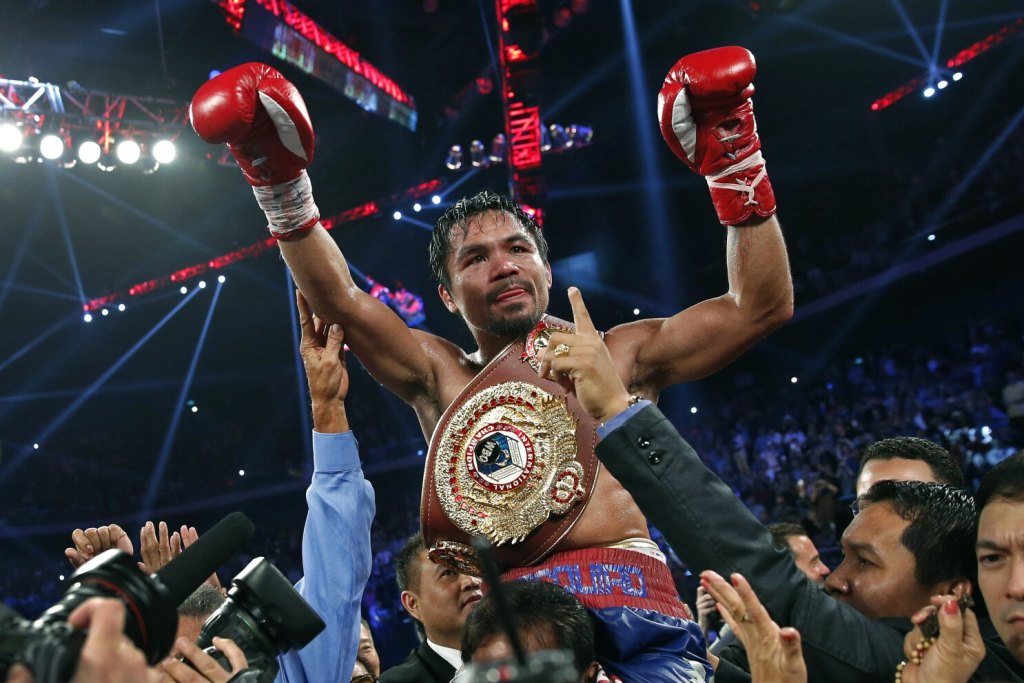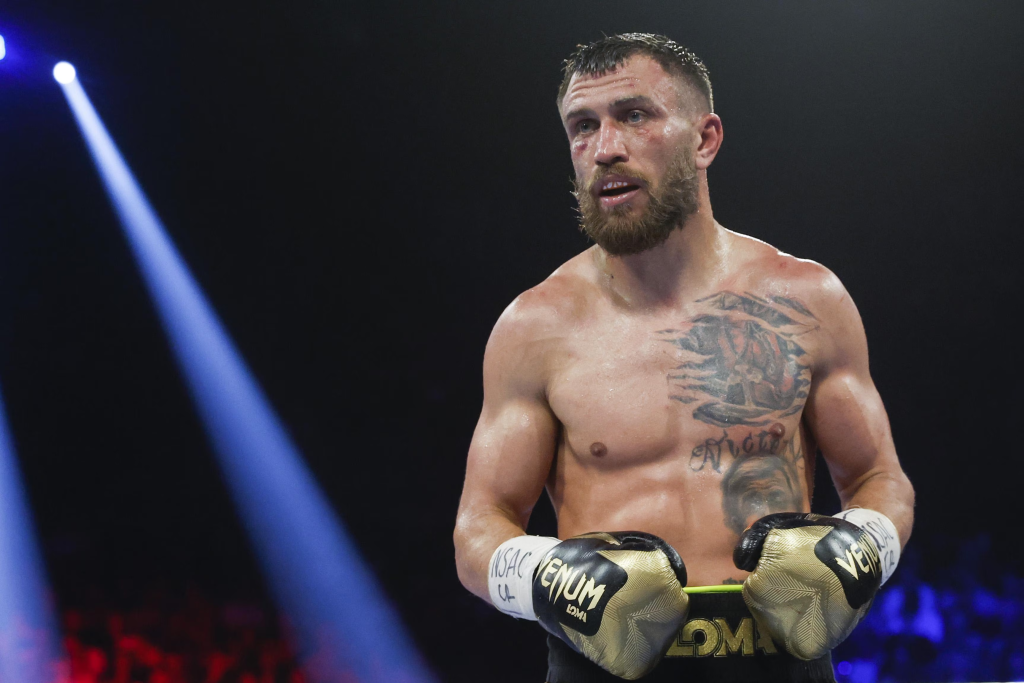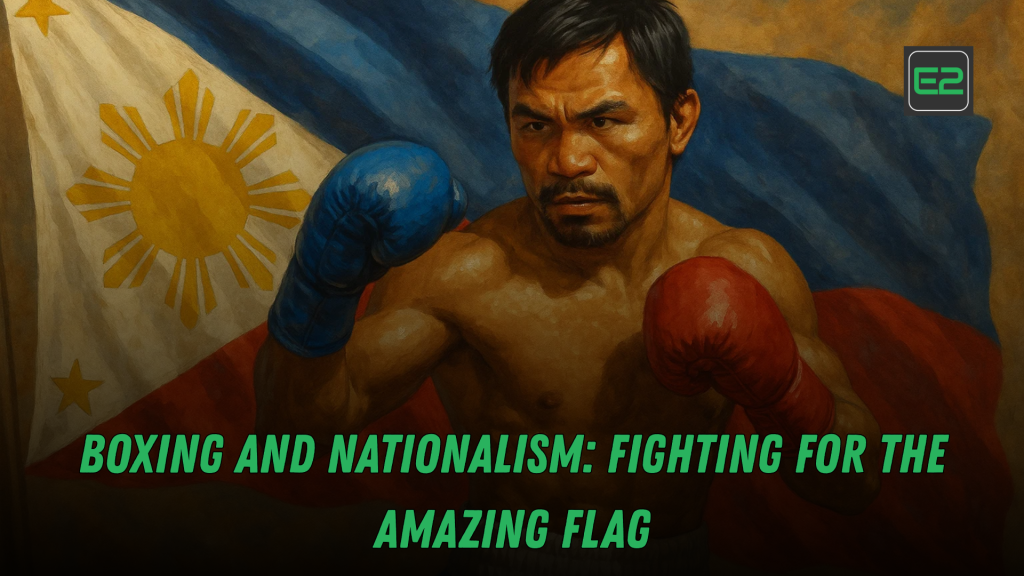Table of Contents
he intersection of boxing and nationalism has created powerful narratives, where fighters are not just representing themselves but also their nations, their histories, and their pride. Boxing has long been considered one of the most intense and high-profile sports, not only for its physical demands but also for the emotional connection it fosters between athletes and their home countries. TThe connection between boxing and nationalism can ignite patriotic fervor, stirring national pride while fueling the emotions of fans worldwide.
In this article, we’ll explore the powerful role of boxing in shaping and expressing national identity, focusing on how boxers fight not just for titles, but for the amazing flag of their countries. We’ll discuss key examples of legendary boxers who personified nationalism, the emotional connection between boxing and national identity, and how the sport continues to serve as a platform for both personal achievement and national pride.
The Power of Boxing in National Identity
Boxing as a Cultural Symbol
Boxing has always been more than just a sport; it is a cultural symbol that embodies the struggles, triumphs, and identity of a nation. For many, boxing has been a reflection of a nation’s values, hopes, and determination to overcome adversity. From the golden age of heavyweight boxing to modern-day champions, boxing serves as a vehicle through which nations can showcase their strength and resilience on the global stage.
When a boxer steps into the ring, they carry the weight of their nation’s expectations, hopes, and dreams. For many fans, boxing represents much more than just a fight—it becomes a reflection of national pride and a way to honor the country’s history.
National Pride and Patriotism in the Ring
In many cultures, boxing is intertwined with nationalism—the belief that a fighter represents their country’s image. The stakes become personal, not only for the athlete but for the millions of fans who cheer them on. A boxer’s victory isn’t just for them; it’s a symbol of national pride, a moment when citizens can unite in support of a champion.
When a boxer stands victorious, waving their country’s flag, it becomes an emotional moment that transcends the sport. It connects fans from all walks of life, from the streets to the arenas, creating a sense of shared identity and collective pride.
Legendary Boxers Who Embodied Nationalism
Throughout history, several iconic boxers have become symbols of nationalism, embodying the hopes and dreams of their respective countries. Let’s take a look at some of the most famous examples.
1. Muhammad Ali – United States: A Fighter for Civil Rights and National Pride

One of the most significant boxers in history, Muhammad Ali (formerly Cassius Clay), didn’t just represent the United States in the ring. He became a symbol of civil rights, standing up against racial inequality while also fighting for his country’s ideals. Ali’s stand on refusing to fight in the Vietnam War in the 1960s made him an iconic figure for both nationalism and social justice. He famously declared, “I ain’t got no quarrel with them Viet Cong.”
His fights, especially the legendary bouts against George Foreman and Joe Frazier, were not only athletic spectacles—they were national events. Ali represented America’s fight for freedom, justice, and pride, transcending boxing and becoming an ambassador for a generation’s struggle for equality.
2. Manny Pacquiao – Philippines: The People’s Champion

No conversation about boxing and nationalism would be complete without mentioning Manny Pacquiao. Known as one of the greatest pound-for-pound boxers of all time, Pacquiao became the national hero of the Philippines, fighting for the pride and honor of his people. Pacquiao’s rise from a poor family in General Santos City to a multi-time world champion was an inspiring story for millions of Filipinos.
His fights were monumental events in the Philippines, with the entire nation rallying behind him. For many, Pacquiao’s victories represented much more than personal success—they embodied the Filipino spirit of resilience, perseverance, and national pride. Even after his boxing career, Pacquiao entered politics, continuing his service to his country and reinforcing his role as a symbol of hope and unity for his people.
3. Vasiliy Lomachenko – Ukraine: A Nation’s Champion Amidst Conflict

When Vasiliy Lomachenko of Ukraine entered the ring, he wasn’t just fighting for himself—he was representing the entire nation. Lomachenko’s incredible skill and boxing prowess made him a national hero, especially when his home country was embroiled in conflict. As Ukraine faced political and military challenges, Lomachenko stood as a beacon of hope and pride for his people.
In 2022, amid Russia’s invasion of Ukraine, Lomachenko, like many Ukrainian athletes, took a stand by temporarily stepping away from the ring to join the Ukrainian military in support of his country. This act reinforced the deep connection between boxing and nationalism in a way that few other sports could match, showing the ultimate sacrifice in the name of country and pride.
4. Floyd Mayweather – United States: Nationalism with a Personal Edge

Though Floyd Mayweather’s style in the ring was often associated with individualism and personal wealth, his role as a representative of the United States also carried nationalistic weight. His undefeated record, his high-profile bouts, and his undeniable skill made him a major figure not only in boxing but in American sports culture.
Mayweather’s brand of boxing embodied the fierce pride that many Americans hold for their athletes—relentless, unyielding, and destined for greatness. His flashy persona, media presence, and constant victories made him an example of American national pride, even as he focused on his own personal legacy.
The Intersection of Boxing and Politics
Boxing as a Platform for Political Expression
In some cases, boxing serves as a platform for political expression, with fighters using their victories to amplify social issues. The famous moments when boxers have stood for civil rights or made bold political statements show how boxing intersects with national movements. Fighters like Muhammad Ali, who protested against the Vietnam War, and Manny Pacquiao, who has spoken out on issues affecting the Filipino people, have shown how boxing can reflect the political and social movements of their time.
The ringside, in these cases, becomes a stage for larger debates about national identity, rights, and justice. In a way, boxers who speak out often represent more than just their countries—they become global figures using their platform to voice the concerns of the masses.
The Role of National Pride in Global Competitions
For countries that are not as dominant in the global arena, boxing serves as a way to elevate their status. When boxers from smaller or developing nations succeed on the global stage, their victories are often seen as a reflection of their country’s growing power or influence. For example, the rise of countries like Mexico, Thailand, and the Philippines in boxing shows how even nations with fewer resources can gain global recognition through athletic success.
The Continued Influence of Boxing and Nationalism in Modern Times
In today’s world, the influence of boxing on nationalism remains strong, albeit in different forms. The rise of social media and streaming platforms has made it possible for fighters to communicate with their fans directly, fostering national pride in real-time. Fans can now support their favorite fighters from anywhere in the world, giving fighters a direct platform to inspire national pride on a global stage.
The Role of Digital Platforms in Expanding Nationalism
Platforms like YouTube, Instagram, and Twitter allow boxers to create brands that resonate with millions. These platforms also allow fans to follow boxers’ journeys, watch interviews, and hear them speak about what it means to represent their country. By engaging with fans in these ways, boxers continue to serve as cultural symbols who embody both personal achievement and national pride.
Boxing as a Global Unity
In today’s increasingly globalized world, boxing serves as a unifying force that connects nations. While rivalries and intense competition exist, boxing’s power to unify fans, elevate national pride, and celebrate global achievements is unparalleled. The sport’s global nature means that nationalistic pride has a broader, more inclusive reach, transcending borders and bringing together people from different backgrounds and cultures.
Boxing – A Fight for National Pride and Glory
Boxing is not just a sport; it is an arena where nationalism thrives. The intense personal struggles, combined with the pride of representing one’s country, create a unique dynamic that other sports rarely replicate. From Muhammad Ali’s defiance against injustice to Manny Pacquiao’s inspirational rise from poverty, boxing has shown time and time again that it is not just about fists and punches; it is about national pride, identity, and honor.
As boxing continues to evolve, the relationship between boxing and nationalism will only grow stronger. The stories of champions like Ali, Pacquiao, Lomachenko, and Mayweather will continue to inspire new generations of athletes and fans to rise up for their country and fight for the amazing flag.
Call to Action
Do you have a favorite boxer who represents your nation with pride? Share your thoughts and experiences in the comments below, and celebrate the power of boxing and nationalism with us! Stay tuned for more stories about the incredible fighters who continue to shape the world of boxing.
Frequently Asked Questions (FAQs)
1. How does boxing promote nationalism?
Boxing promotes nationalism by providing a platform where athletes represent their country, and victories on the global stage create a sense of pride and unity among citizens.
2. Why is Muhammad Ali considered a symbol of nationalism?
Muhammad Ali is considered a symbol of nationalism due to his role in fighting for civil rights in the U.S., his defiance against the Vietnam War, and his ability to inspire millions of people both within and outside the U.S.
3. How does boxing reflect national identity?
Boxing reflects national identity through the struggles and triumphs of fighters who represent the culture, values, and history of their nation, turning personal victories into symbols of national pride.
4. Who are some modern boxers that represent their countries with pride?
Modern boxers like Canelo Álvarez (Mexico), Vasiliy Lomachenko (Ukraine), and Manny Pacquiao (Philippines) continue to represent their countries and showcase their national pride in the ring.
5. Can boxing inspire political and social change?
Yes, boxing has historically been used as a platform for political expression, with fighters like Muhammad Ali and Manny Pacquiao using their fame to address issues such as civil rights, social justice, and national unity.
